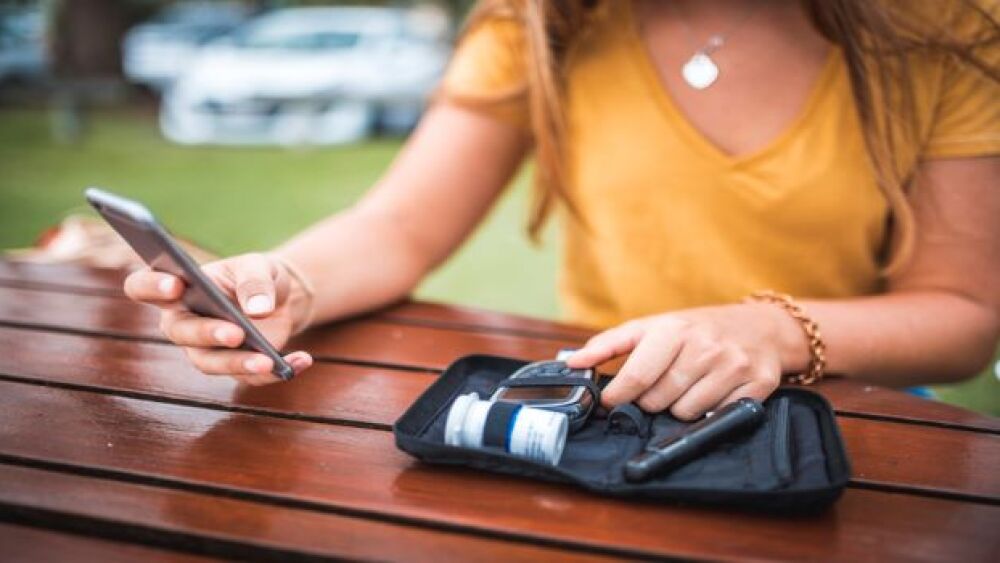A year after treatment, Vertex’s VX-880 has eliminated the need for insulin injections in two Type 1 diabetes patients in a Phase I/II clinical trial of its investigational stem cell-based therapy.
Pictured: A person checking their blood glucose level/Getty Images
Friday, Vertex Pharmaceuticals released one-year follow-up data from a Phase I/II clinical trial of its investigational stem cell-based therapy VX-880, showing that two patients with Type 1 diabetes no longer needed insulin injections.
Both patients also attained the study’s primary endpoint, having no serious hypoglycemic events (SHE) and demonstrating strong reductions in HbA1c one year after receiving VX-880. One patient achieved an HbA1c level of 5.3% at 21 months, down from a baseline value of 8.6%. The other patient had 6% HbA1c at 12 months as compared with 7.6% at baseline.
Continuous glucose monitoring also showed that both patients spent 95% of the time within the target range of blood glucose levels. The American Diabetes Association recommends at least a 70% time in range for Type 1 diabetes (T1D) patients.
Vertex presented these data at the 2023 American Diabetes Association (ADA) 83rd Scientific Sessions Conference.
“These data represent a foundational advance in the potential treatment of T1D, bringing us one step closer to a potentially curative therapy for patients who are waiting,” Felicia Pagliuca, Vertex’s disease area executive for Type 1 diabetes, said in a statement.
VX-880 is an allogeneic stem cell therapy that delivers fully differentiated and insulin-producing islet cells to restore the body’s glucose-responsive capabilities to produce insulin and, in turn, improve glucose regulation. The investigational therapy is infused through the hepatic portal vein and requires recipients to be on immunosuppressive treatments.
At ADA 2023, Vertex presented data from six patients enrolled in the Phase I/II study. Following VX-880 treatment, all patients showed better glycemic control, better time-in-range, signs of endogenous insulin secretion, and a notable reduction in or complete elimination of the need for external insulin intervention.
Side effects of VX-880 treatment were mostly mild to moderate in severity and consisted primarily of dehydration, rashes, hypomagnesemia and diarrhea. There were no treatment-related serious adverse events. One patient developed a perioperative severe hypoglycemic event.
In May 2022, the FDA placed VX-880’s clinical development program under clinical hold because the regulator found that there was “insufficient information to support dose escalation with the product,” according to Vertex’s news release at the time.
In response to the pause, Vertex CMO Carmen Bozic pointed to early data showing that “VX-880 can restore glucose-regulated insulin production and improve glycemic control,” and touting the “achievement of insulin independence by the first patient” as a “landmark” milestone.
Two months later, in July 2022, the FDA lifted the clinical hold allowing Vertex to push through with its Phase I/II study.
Tristan Manalac is an independent science writer based in metro Manila, Philippines. He can be reached at tristan@tristanmanalac.com or tristan.manalac@biospace.com.






